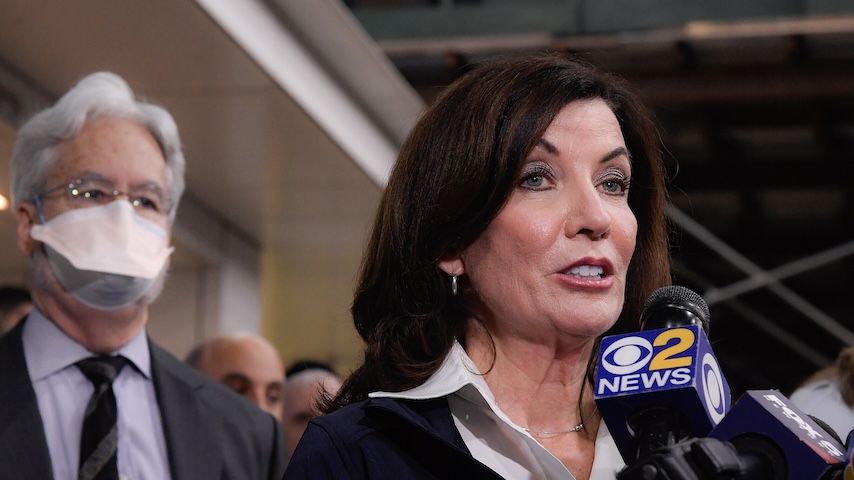New York Is Going to Make Climate Polluters Pay
Photo by Marc A. Hermann/MTA/Wikimedia Commons
New York governor Kathy Hochul signed the Climate Change Superfund Act into law on Thursday, taking what some think is a hugely important swing at major emitters. The law, which had languished on Hochul’s desk for months, will theoretically grab at least $75 billion from the worst climate polluters in the state over the course of 25 years; the cash will be used to pay for the damage those emitters caused.
“The Climate Change Superfund Act is now law, and New York has fired a shot that will be heard round the world: the companies most responsible for the climate crisis will be held accountable,” said New York state senator Liz Krueger, who sponsored the bill, in a statement. The law will take about $3 billion each from a relatively small number of companies with the largest emissions this century.
New York follows Vermont down this path, though the scale here is decidedly different — Vermont is the second smallest state by population, and the smallest economy. New York has a GDP roughly on par with Canada or Brazil.
“With nearly every record rainfall, heatwave, and coastal storm, New Yorkers are increasingly burdened with billions of dollars in health, safety, and environmental consequences due to polluters that have historically harmed our environment,” Hochul said in a statement. The money collected will go toward a variety of climate adaptation and recovery measures, from upgrading roads and bridges to restoring wetlands and improving stormwater drainage.
In general, climate activists were thrilled by the move. “Big Oil is making a killing off climate disaster — but now, in New York they’ll be on the hook for their damages,” said Food & Water Watch organizer Eric Weltman. “New York State is on the leading edge of polluter pays legislation, redirecting corporate profits into public coffers, and investing in the climate resiliency efforts we need to survive worsening climate chaos.”
More staid analysts agreed. The Fiscal Policy Institute, a New York-based non-partisan think tank, “applauded” Hochul’s decision to sign the bill; their previous analysis found that between 30 and 40 companies would be affected by the law, including the usual suspects like ExxonMobil and foreign actors like Saudi Aramco. “The Superfund is a fiscally sound mechanism for upgrading our statewide infrastructure in the face of urgent climate challenges, and FPI commends the governor and legislature for successfully working together to enact it,” the FPI’s director Nathan Gusdorf said.
The law will, obviously, face legal challenges. But at least for the moment it provides a solid blueprint for other states to follow; the billions would add up, at some point.